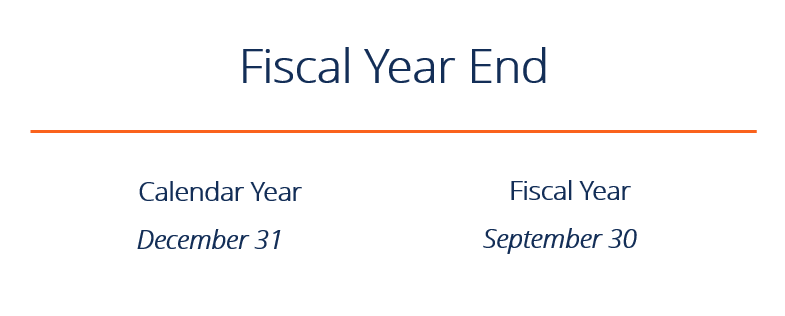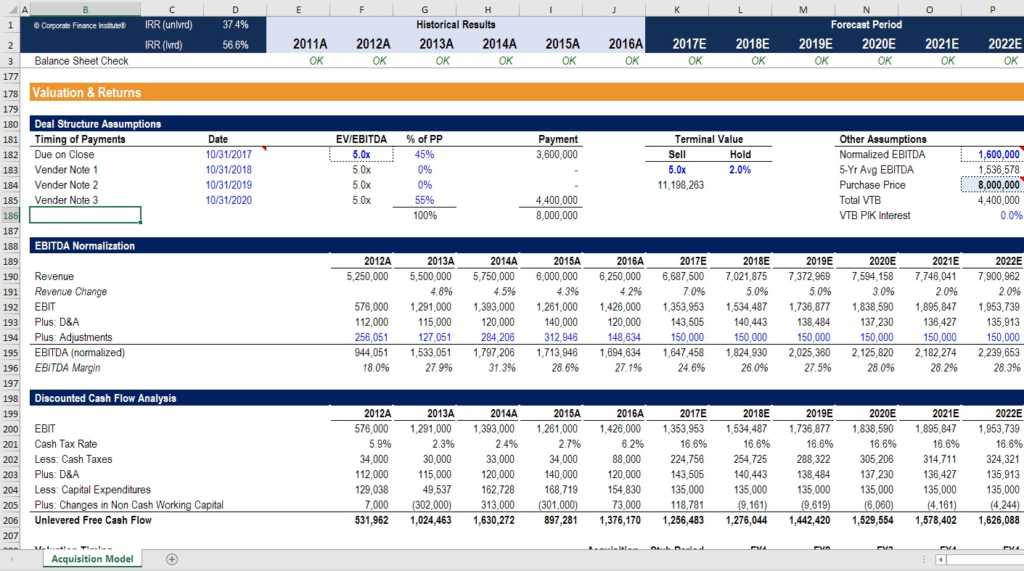Fiscal Year (FY)
A 12-month reporting period for a company
What is a Fiscal Year (FY)?
A Fiscal Year (FY), also known as a budget year, is a period of time used by the government and businesses for accounting purposes to formulate annual financial statements and reports. A fiscal year consists of 12 months or 52 weeks and might not end on December 31. A period that is set from January 1 to December 31 is called a calendar year.
Here is an example of the difference between a calendar year end and a fiscal year end:

Example of Usage
A Fiscal Year (FY) does not necessarily follow the calendar year. It may be a period such as October 1, 2009 – September 30, 2010. Accountants will reference revenue accrued on July 30 as revenue accrued in the fiscal year 2010.
Fiscal years that follow a calendar year would refer to the period between January 1, 2018 and December 31, 2018, for example.
Why Use a Different Fiscal Year?
1. Government fiscal year
The application of a fiscal year is different in different countries. Here are a few examples:
- Australia’s FY starts on July 1 and ends on June 30.
- Austria’s FY is the calendar year, January 1 – December 31.
- The United States Federal Government’s FY starts on October 1 and ends on September 30.
2. Business seasonality
The use of a fiscal year that’s different than the calendar year presents a business opportunity for many companies, such as companies whose business is largely seasonal.
Businesses and organizations may choose their FY based on preference. A good practice of accounting principle suggests closing the FY at the low point of business activity. For example, agriculture companies often end their FY right after harvest season.
Another common example is consumer retail businesses. They have their busiest season in December and January; therefore, they often have their year end as of January 31, so they can capture the entire holiday season in their year-end numbers.
3. Cost savings on accounting and audit fees
Since the majority of businesses have their fiscal year end on December 31, that is when the accounting firms are busiest. Sometimes, businesses will pick a different year end when the accountants are less busy to get a lower rate. This can be particularly true with private businesses that prefer to save money on audit and accounting fees.
Applications in Financial Modeling and Valuation
In financial modeling and when performing company valuations, it’s important to pay close attention to when a company’s fiscal year ends. If comparing two or more companies, adjustments may need to be made to ensure it’s an apples-to-apples comparison.
For this reason, analysts typically use a metric called Last Twelve Months (LTM) when comparing companies. LTM removes the issue of the different year ends by simply examining the latest 12 months that are available. Read how in our guide to LTM financials.
Additional Resources
Through financial modeling courses, training, and exercises, anyone in the world can become a great analyst. To keep advancing your career, the additional CFI resources below will be useful:
Analyst Certification FMVA® Program
Below is a break down of subject weightings in the FMVA® financial analyst program. As you can see there is a heavy focus on financial modeling, finance, Excel, business valuation, budgeting/forecasting, PowerPoint presentations, accounting and business strategy.
A well rounded financial analyst possesses all of the above skills!
Additional Questions & Answers
CFI is the global institution behind the financial modeling and valuation analyst FMVA® Designation. CFI is on a mission to enable anyone to be a great financial analyst and have a great career path. In order to help you advance your career, CFI has compiled many resources to assist you along the path.
In order to become a great financial analyst, here are some more questions and answers for you to discover:
- What is Financial Modeling?
- How Do You Build a DCF Model?
- What is Sensitivity Analysis?
- How Do You Value a Business?

